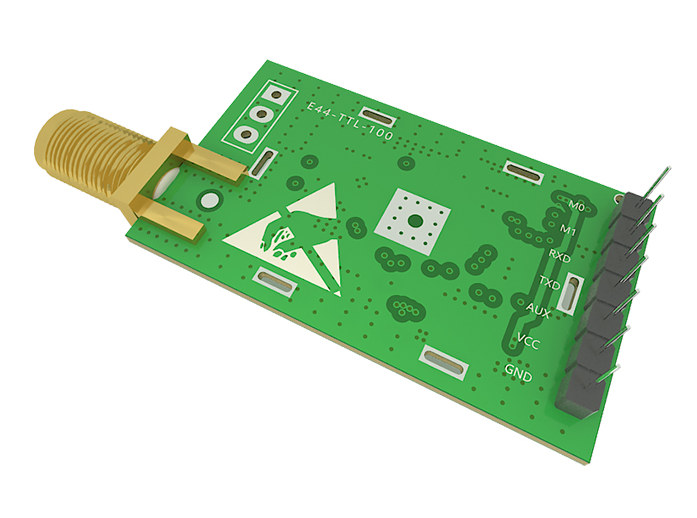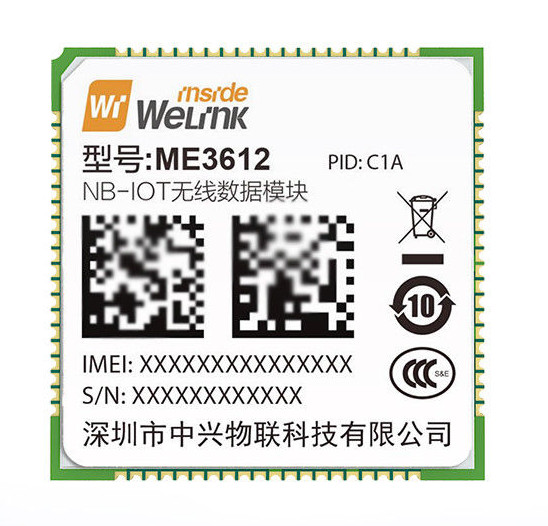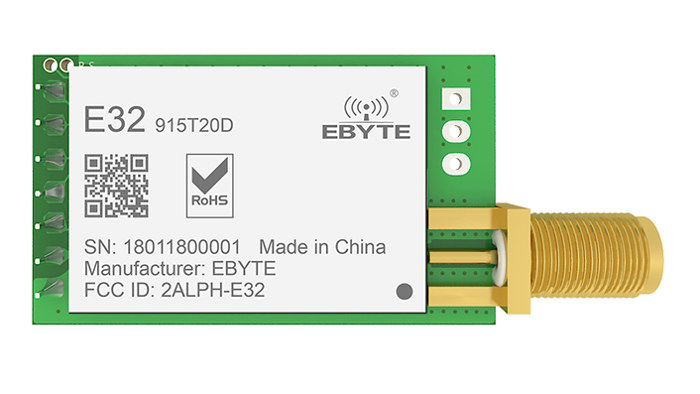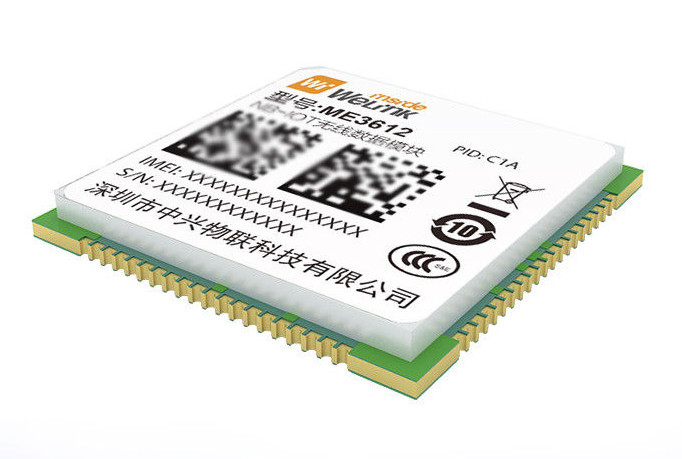Chengdu Ebyte Electronic Technology Ltd (or just Ebyte for short) is a company based in Western China that design and manufacturer low cost wireless modules for LoRa, WiFi, Bluetooth, Zigbee, NB-IoT & GPRS cellular connectivity, many of which appear to be FCC certified.
The list of modules is way too long, so I’ll just have a look at two products from the company: Ebyte E32-915T20D LoRa 915 MHz module and Ebyte ME3612 NB-IoT wireless module.
Ebyte E32-915T20D LoRa 915 MHz module
- Connectivity
- Semtech SX1276
- LoRa 900~931MHz (default: 915 MHz), 32 channels
- Range – up to 3 km with 20 dBm power, 5 dBi antenna
- Data rate – 2.4 kbps (default), configurable to 0.3, 1.2, 2.4, 4.8, 9.6, 19.2 kbps
- Rx Sensitivity – -138dbm at 0.3kbps
- Expansion – 7-pin header 2.54mm pitch with UART, USART host interface
- Power Supply – 2.1 to 5.5V DC
- Power Consumption – Standby: 2.0 uA; Tx: 120 mA at 20dBm; Rx: 14 mA; average: 30 uA
- Dimensions – 36 x 21 mm (excluding SMA connector)
- Weight – 6.7grams (with SMA connector)
- Temperature Range – Operating:-40 ~ +85; storage: -40 ~ +125
- Humidity – 10% ~ 90% relative humidity, no condensation
 You’ll find more details including an 18-page user manual in the product page. This module is sold for $9.06 on eBay, and $9.49 on Aliexpress.
You’ll find more details including an 18-page user manual in the product page. This module is sold for $9.06 on eBay, and $9.49 on Aliexpress.
Ebyte ME3612 NB-IoT wireless module.
- Connectivity
- Narrow band cellular IoT (NB-IoT) network communication, using about 180KHz bandwidth
- Download: 34Kbps; upload: 66Kbps
- Bands:
-
B3 1710 ~ 1785MHz (TX), 1805 ~ 1880MHz (TX)
-
B5 824 ~ 849MHz (TX), 869 ~ 894MHz (TX)
-
B8 880 ~ 915MHz (TX), 925 ~ 960MHz (TX)
-
- SIM/USIM card compatible;
- Complies with 3GPP TS 27.007, 27.005 AT command
- Supply Voltage – 3.4V ~ 4.2V (typical 3.8V)
- Low power modes – PSM, EDRX
- Dimensions – 30 x 30 x 2.3mm; 80-pin LCC package
 I could not find a product page on the official website, but a ZIP file includes all documentation mostly in Chinese, but also in English, as well as Windows based tools (e.g. ZTE Log Catching Tools ) and drivers.
I could not find a product page on the official website, but a ZIP file includes all documentation mostly in Chinese, but also in English, as well as Windows based tools (e.g. ZTE Log Catching Tools ) and drivers.
The module does not appear to be particularly inexpensive however, as it is sold for $39.69 on eBay. There’s no such Ebyte module on Aliexpress, but interestingly the exact same module is sold under another brand (Gosuncn) for just $17.14 shipped.
You’ll find more modules with pricing on Ebyte stores on eBay and Aliexpress.
Thanks to Christopher for the tip.

Jean-Luc started CNX Software in 2010 as a part-time endeavor, before quitting his job as a software engineering manager, and starting to write daily news, and reviews full time later in 2011.
Support CNX Software! Donate via cryptocurrencies, become a Patron on Patreon, or purchase goods on Amazon or Aliexpress






